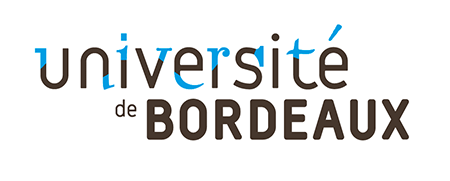Article: Craving and substance use among patients with alcohol, tobacco, cannabis or heroin addiction: a comparison of substance-specific and person-specific cues
Written by Jérôme OLIVE - 06 march 2015
 Drs. Melina Fatséas and Fuschia Serre and collaborators of the team of Pr. Marc Auriacombe (Phenomenology and determinants of appetitive behavior / Sanpsy, University of Bordeaux / CNRS (French National Scientific Research Agency) USR 3413 and Centre Hospitalier Charles Perrens / Pole Addictologie) have just published a study to document for the first time in the context of everyday life, the role of certain environmental stimuli in relapse for people who have a substance addiction (alcohol, tobacco, cannabis, heroin).
Drs. Melina Fatséas and Fuschia Serre and collaborators of the team of Pr. Marc Auriacombe (Phenomenology and determinants of appetitive behavior / Sanpsy, University of Bordeaux / CNRS (French National Scientific Research Agency) USR 3413 and Centre Hospitalier Charles Perrens / Pole Addictologie) have just published a study to document for the first time in the context of everyday life, the role of certain environmental stimuli in relapse for people who have a substance addiction (alcohol, tobacco, cannabis, heroin).
Involuntary relapse is a feature of all addictions and a challenge for patients and their families. Earlier work by the same team had already demonstrated the involvement of psychophysiological reactivity to these stimuli (cues) in relapse. But the work was carried out in artificial laboratory conditions. This time, Dr. Melina Fatséas and colleagues established a collaboration with Dr. Joel Swendsen of Incia (Institute of cognitive and integrative neurosciences) / UMR CNRS 5287 to adapt an original procedure using smartphones to study individuals directly in their usual environment and daily activities. This method was used to evaluate real-time consumption of people in their natural environment and to establish causal links with environmental or emotional factors of everyday life, which until now had not been done. After validating the use of this method in patients with substance addictions, the research team has shown for the first time that the only habits, places, objects or consumption contexts usually associated with substance use and with the history of each person, were, in the absence of the substance, powerful triggers for craving and relapse in the hours following the exposure to these factors. Interestingly, the researchers also confirmed through this study the central role of the intensity of craving in the risk of relapse and therefore in the chronicity of addiction. This study highlights the interest of focusing treatments (whether medical, psychological, social and educational) on reducing craving and control of its determinants. This work will also open up the prospect of using individual markers predictive of relapse to better individualize therapeutic interventions for the prevention of relapse in addiction.
This research is the result of a partnership between the University of Bordeaux, CNRS and Centre Hospitalier Charles Perrens (linked to the University Hospital of Bordeaux). Funding for this study was provided by a grant MILDT-INSERM (AAP 2002), a CNRS-University Hospital Grant (PRA 2008-2010), a grant from the Regional Council of Aquitaine (CRA 20091301018) and an excellence grant from MILDT (2010).
Fatseas, M. Serre, F. Alexander, JM, Debrabant, R., Auriacombe, M., Swendsen, J. Craving and substance use Among patients with alcohol, tobacco, cannabis or heroin addiction: a comparison of substance-specific and person-specific cues. Addiction 2015; DOI: 10.1111 / add.12882
http://onlinelibrary.wiley.com/doi/10.1111/add.12882/abstract
Classified in : News - Tags : craving, relapse, addiction, cues
Comments are closed.




 Access to laboratory
Access to laboratory

